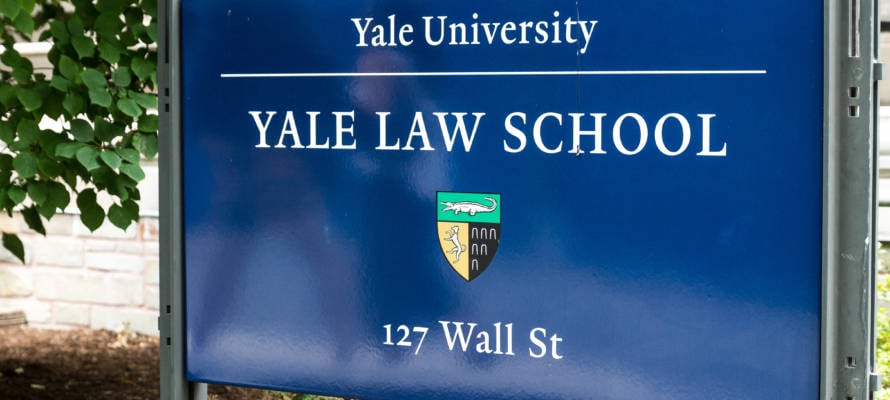During the Jewish High Holiday season, a swastika above the word “Trump” was painted on the stairs of Yale Law School.
By United With Israel Staff
Almost two weeks ago, on the Saturday night between Rosh Hashana and Yom Kippur, anti-Semitic graffiti appeared on the steps of the side entrance to Yale Law School, reported Yale Daily News (YDN). A spray-painted white swastika was painted above the word “Trump.”
By Sunday noon, black paint and a doormat covered the offensive graffiti, which has since been cleansed in its entirely.
“We are saddened by this act of hate against our community at any time but understand that this is particularly difficult occurring between the High Holy Days,” said Ellen Cosgrove, associate dean of students at Yale Law School, according to YDN. “Diversity and inclusion are core values of our institution [and] attacks against individual students or communities of students will not be tolerated.”
Yale Law School Dean Heather Gerken issued a statement toYDN on Monday that reaffirmed Yale’s values. She also offered support and said that there would be an investigation into the matter.
“Yale Law School has zero tolerance for discrimination or harassment of any kind, and symbols of hate have no place on our campus or in our society,” Gerken said. “We take an incident like this extremely seriously and are currently investigating.”
Calling the graffiti an act of anti-Semitism, Gerken stressed that it is “utterly antithetical” to the values of Yale Law School. She noted that there is no evidence that a member of the Yale community painted the swastika.
Yale Law School’s Office of Student Affairs and the Joseph Slifka Center for Jewish Life, as well as other organizations in the Yale community, condemned the act and offered students support.
According to Rabbi Jason Rubenstein, Jewish chaplain at Yale, video footage from late Saturday night and early Sunday morning is being evaluated in order to identify the perpetrator.
The Yale Police Department told Slifka on Sunday that they visited “all other likely targets of anti-Semitic activity” and found “no evidence that this incident is part of a larger campaign,” reported Rubenstein.
“[University Administrators] very much see this as an attack not just on Yale’s Jewish community, but on Yale itself and its values, which is some of the most powerful consolation we can receive as we figure out what this mean[s] for our community,” Rubenstein said, according to YDN.
This is not the first anti-Semitic incident on the Yale campus. Swastikas were found on the Old Yale Campus in 2008 and 2014. In both cases, the responsible individuals were never found.
